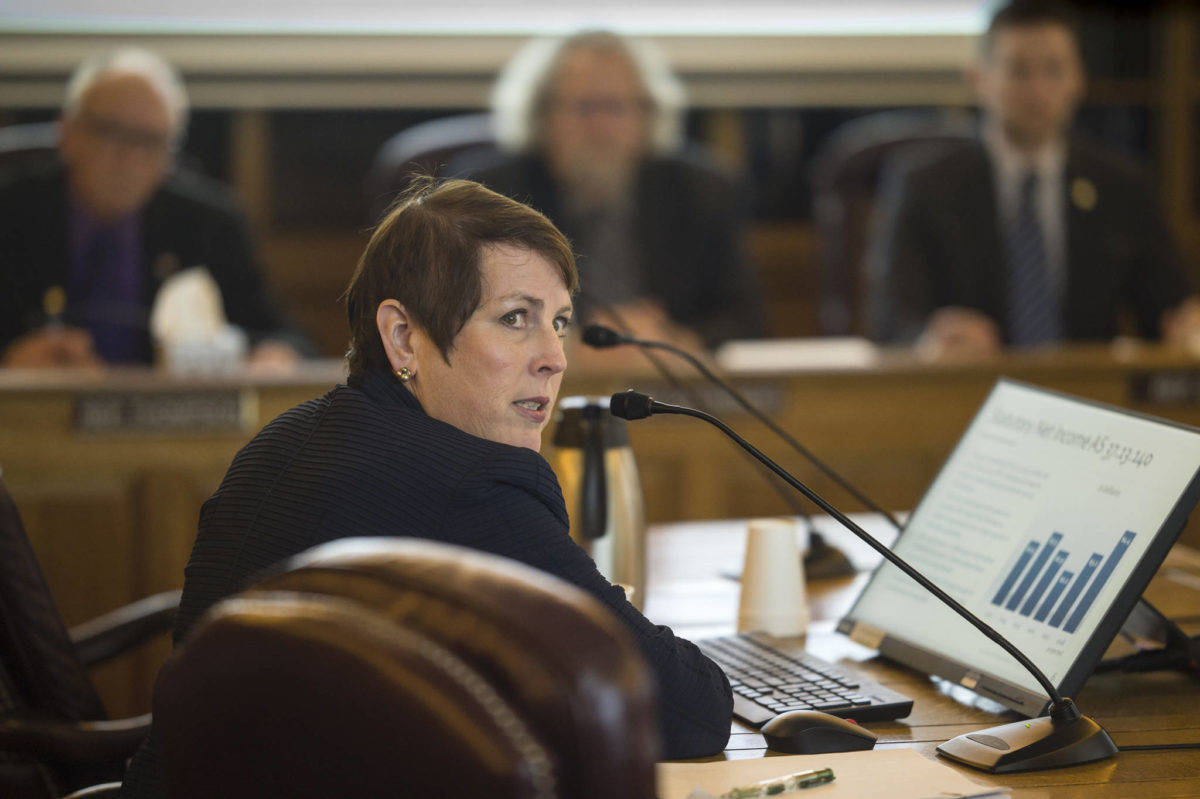“Alaska just recorded its hottest month in history” — Juneau Empire, Aug. 20
A few years ago it would have been a tough sell to convince Alaskans that climate change was real, was human caused, and was affecting Alaska more than many states in the U.S.
By now most Alaskans have seen for themselves some aspect of the climate crisis. Unprecedented heat waves, huge fires, the air heavy with smoke for weeks, sea ice disappearing, glaciers melting, permafrost melting, villages eroding into rivers and the ocean. That is today with just one degree Celsius (1.8 degrees Fahrenheit) of global heating above pre-industrial levels.
The UN Intergovernmental Panel on Climate Change Report in 2018 underlined how much worse the world climate and economy would be if heating reached 2 degrees Celsius (3.6 degrees F), and outlined a path to try to keep heating instead to 1.5 degrees C ( 2.7 F). To reach this goal global net human caused emissions of carbon dioxide would need to be reduced by about 45% below 2010 levels by 2030. Does Alaska have a part to play?
The tough sell this year is to convince Alaskans and our state government that moving away from fossil fuels and toward renewable sources of energy is a good thing even for an oil state. But it might not be voluntary!
Consider that there is so much coal, oil and gas out there that to burn all of it would destroy the natural systems on which we depend for survival. One estimate is that approximately 80% of known fossil fuel reserves must be left in the ground to avoid extreme climate instability. This is physics, not economics or politics. You burn more fossil fuels, global temperatures rise, leading to more climate instability. Where economics and politics are involved is in determining which fossil fuels get burned. Approximately, the fossil fuels with the lowest production costs get burned first, and the rest become stranded assets. Are production costs of Alaska’s fossil fuel assets in the cheapest 20% or so of fossil fuel resources worldwide? Will we be left holding the bag of stranded assets?
On Sept. 9-13 in Juneau, the Alaska Permanent Fund will host a worldwide gathering of similar funds, the International Forum of Sovereign Wealth Funds. Some of those funds are starting to divest (pull money out of) fossil fuel companies on fiduciary (economic) grounds. The governor of the Bank of England told a conference in 2016 that “the vast majority” of carbon reserves are “unburnable” and warned of massive “stranded assets”. To date over a thousand institutions including pension funds, cities, banks, universities, and churches have divested more than 8 trillion dollars from fossil fuel companies. In 2018, after Ireland and New York City announced plans to divest, Shell announced in its yearly report to shareholders that the divest-from-fossil-fuels campaign was “a material risk” to its business.
The Permanent Fund should divest from fossil fuel companies and put those resources into better performing sectors of the economy. Economic and legal liability pressures on these companies are increasing rapidly as the climate catastrophe unfolds and is linked to the fossil fuel industry. Today a prudent investor pays attention to climate scientists’ warnings about the impending climate disaster, to actual and projected disruptions in our economy, to the flood of lawsuits against Big Fossil Fuel, and to the giant sucking sound of investment money draining out of fossil fuel investments.
Alaska can also start planning a renewable energy future, a cutting edge economy based on living with, not destroying, our beautiful place. We can forget about spending billions on a gas pipeline for which there are no customers. Alaskans can make and execute a plan to save or move Alaska Native villages that are falling into the sea or eroding into rivers. Alaskan politicians can quit making the lame excuse that there isn’t any money to support our people on the front lines of climate change, while giving zillions in tax breaks to the very fossil fuel corporations that are causing the climate catastrophe.
Alaskans are beginning to take the climate crisis seriously and we should make sure our politicians heed us, not the fossil fuel giants.
• Mike Tobin is a member of 350Juneau Steering Committee. My Turns and Letters to the Editor represent the view of the author, not the view of the Juneau Empire.

